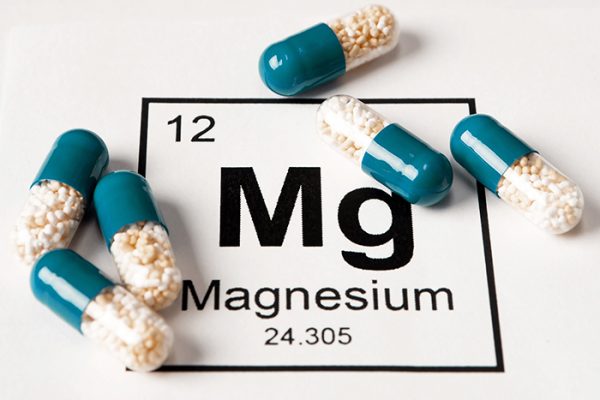Magnesium and Magnesium L-Threonate

As well as depression, people with Parkinson’s often suffer from anxiety at some point of having the condition. Anxiety is not tied to disease progression — it can begin before a PD diagnosis or develop much later on and often accompanies depression. Up to 50% of people with Parkinson’s will experience anxiety or depression at some point within having the condition.
Magnesium is an essential dietary mineral and is the second most common electrolyte in the body. Magnesium deficiencies are common in the western diet, and magnesium deficiencies have been linked to a number of adverse health effects including weakness, cramps, anxiety, and high blood pressure. Low levels of magnesium is also linked to Alzheimer’s, diabetes, Type 2 Diabetes and Heart Disease.
A 2017 systematic review looked at the results of 18 different studies. The researchers found that magnesium supplements may improve measures of anxiety in people vulnerable to the condition, but improved quality of evidence in this area is needed. It is recommended that people trying magnesium for anxiety should start with a lower dosage, such as 100 milligrams (mg) and avoid exceeding 350 mg per day without a doctor’s approval.
For improving other symptoms associated with Parkinson’s including fatigue, muscle cramping and weakness, constipation, it’s recommended that men and women get 400–420 mg and 320–360 mg per day, respectively and depending on age. High dosage of magnesium can cause diarrhoea.
We recommend that people with Parkinson’s take a specific Magnesium, called Magnesium L’Threonate. There are many supplemental forms of Magnesium, which can all have great health benefits on Parkinson’s symptoms, but what makes Magnesium L-Threonate unique is that research has shown that this form in particular can improve brain magnesium levels and support memory / overall cognitive function. Research on Magnesium L-Threonate has shown it to support learning, recall, and cognitive health.
Magnesium L-Threonate is a premium magnesium supplement developed by MIT researchers (Massachusetts Institute of Technology (MIT) is a private research university in Cambridge, Massachusetts). It is the only form of Magnesium shown to deliver elemental magnesium directly to the brain, and has been found to offer a number of cognitive benefits in addition to the typical benefits of magnesium supplements.




